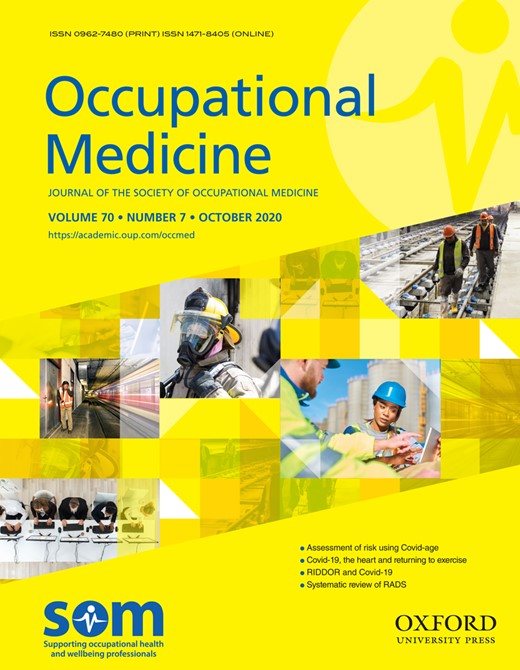-
PDF
- Split View
-
Views
-
Cite
Cite
Gautam Gulati, Brendan D Kelly, Physician suicide and the COVID-19 pandemic, Occupational Medicine, Volume 70, Issue 7, October 2020, Page 514, https://doi.org/10.1093/occmed/kqaa104
Close - Share Icon Share
The suicide of a New York City physician caring for COVID-19 patients represents a human tragedy [1]. Suicide rates among physicians are higher than in the general population. Women physicians are at greater risk, as are anaesthesiologists, psychiatrists, general practitioners and general surgeons [2]. Physician suicide can be related to untreated mental illness and to occupational risks from the emotional impact of work [3]. Access to means such as toxic medication increases risk.
The COVID-19 pandemic presents additional suicide risks in the general population owing to social isolation, economic stressors, reduced access to community support, uncertainty and reduced help-seeking for mental and physical ill-health [4]. In a challenging healthcare environment, physicians face additional risk factors including burnout, moral injury and post-traumatic stress disorder [5].
One factor merits particular discussion in relation to adverse psychological effects on front-line physicians: moral injury from ethical dilemmas [6]. Commentary on the COVID-19 pandemic has focussed on the ethics of front-line decision-making about access to intensive care facilities in the face of unprecedented demand. Relevant guidance and published decision-making protocols seek to make these decisions more objective. They do not, however, eliminate potential moral injury arising from a decision to admit one patient over another or a decision about withdrawal of life support [6].
Other areas of ethical conflict can relate to a physician’s personal sphere of decision-making. For example, should a physician work with inadequate personal protective equipment? What if the physician has an elderly parent or an immunocompromised dependent? [7]
The risk of moral injury is increased by professional isolation. Normally physician burnout is moderated by access to professional peer groups and multidisciplinary teams. These are currently under threat from service re-organization, clinical demands and social distancing measures. Clearly, it is vital that physicians seek help early for burnout or evolving mental disorder. Even if occupational support helplines are available there is evidence that physicians are reluctant to seek help [8].
Against this background, we make two practical recommendations about suicide reduction strategies for physicians.
Firstly, every hospital should establish a COVID-19 Clinical Ethics Committee (CEC) with multidisciplinary input, service-user representation and input from experts in medical ethics and law. Many hospitals have existing CECs which may already be taking on this role. But in some countries and services, CECs do not exist. Physicians should be able to consult these committees at short notice on a confidential basis about critical clinical decisions. Person-specific ethics consultation will always be superior to a guidance document.
Secondly, physician peer groups should prioritize meetings using video-conferencing technology. These, informal, ‘safe-space’ discussions can prove invaluable for addressing professional isolation and ethical dilemmas in both the professional and personal spheres. It is often peers who identify that a colleague may be struggling.
As we navigate this pandemic, we should recognize moral injury as a potential risk factor for physician suicide. We can modify this risk. We owe it to our colleagues and patients to do so.
References



